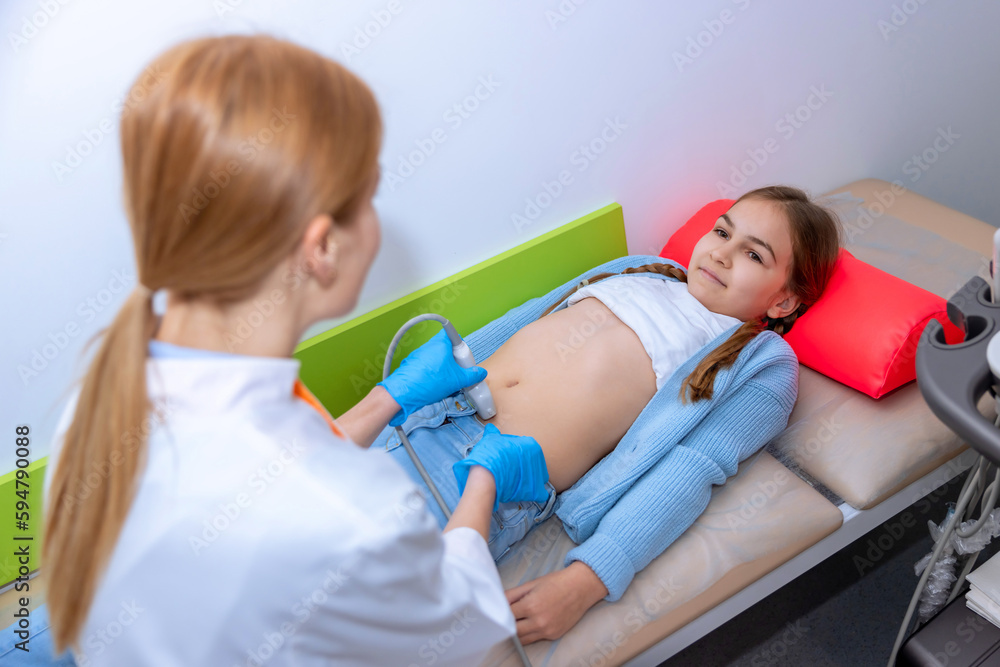In a remarkable medical feat, doctors at Lyari General Hospital in Karachi successfully removed a metallic lock from the stomach of a young girl without performing any surgical procedure. The rare and delicate procedure has drawn attention from medical professionals across the country, highlighting the skill and innovation of local doctors working in government hospitals under resource-limited conditions.
A Startling Discovery
The incident came to light when the parents of a six-year-old girl brought her to Lyari General Hospital, complaining of severe abdominal pain, nausea, and discomfort. Initially believed to be a common stomach infection, the doctors proceeded with routine tests. However, an X-ray revealed something unexpected — a medium-sized metallic lock lodged in the girl’s stomach. The discovery left the family stunned and concerned, raising questions about how it got there and how it could be removed without harming the child.
Swift Action by Medical Team
Upon the shocking revelation, the hospital immediately assembled a team of experienced pediatricians and gastroenterologists to assess the best possible course of action. Surgery was initially considered, as removing a metallic object from the stomach usually requires an invasive procedure. However, the team decided to attempt an endoscopic removal — a non-surgical, less risky method using specialized tools and cameras inserted through the throat.
Dr. Nadeem Rajput, one of the lead gastroenterologists at Lyari General Hospital, stated, “We knew this would be a complicated case due to the shape and size of the object, but we were determined to avoid surgery to reduce the risks for the child.”
Endoscopic Procedure: A Safer Alternative

The doctors used an endoscope, a long, flexible tube equipped with a camera and medical instruments, to reach the foreign object. Under sedation, the child was carefully monitored throughout the procedure. The team skillfully navigated the esophagus and stomach lining to grasp and extract the lock without causing injury to the internal tissues.
The entire procedure took under an hour, and the lock was successfully removed without any complications. The girl was kept under observation for a few hours and later discharged with a clean bill of health. Her parents expressed immense gratitude for the medical team’s efficiency and care.
Medical Achievement Under Challenging Conditions
What makes this case even more commendable is that the procedure was performed in a government-run hospital that operates under limited financial and technological resources. Lyari General Hospital has been striving to improve its medical services, and this incident reflects the dedication and expertise of its staff.
Cases like this are often referred to major private hospitals, but the successful handling of such a complex situation by a local government facility is a positive sign for public healthcare in Pakistan.
The Dangers of Foreign Object Ingestion
Foreign body ingestion is a common issue among children, particularly those under the age of 6. Coins, batteries, marbles, and small toys are frequently swallowed, sometimes without anyone noticing. In many cases, the objects pass through the digestive system without harm, but in some situations, they can cause choking, internal damage, or infection.
Ingesting metallic objects like locks is extremely rare and potentially life-threatening. Such objects can become lodged, block digestion, or puncture internal organs if not addressed promptly. This case underlines the importance of keeping potentially dangerous items out of children’s reach and seeking immediate medical attention when symptoms arise.

Importance of Public Awareness
This incident also serves as a reminder for parents to monitor their children’s activities and surroundings closely. It’s essential to be aware of what young children are playing with and to secure small objects that can be easily swallowed. Public awareness campaigns and parental education are crucial in reducing such cases in the future.
Moreover, the case emphasizes the importance of prompt diagnosis. If the lock had remained in the stomach for an extended period, the consequences could have been severe. Early detection and the right approach were key to the girl’s full recovery.
Praise for the Medical Team
Following the successful procedure, hospital management commended the medical staff involved for their quick thinking, precise execution, and dedication to patient care. The incident has brought positive recognition to Lyari General Hospital, which often remains under the radar despite serving thousands of patients in densely populated areas of Karachi.
Local residents have also expressed pride in the hospital’s performance, calling it a beacon of hope in an area that frequently faces healthcare challenges.
Conclusion
The successful removal of a metallic lock from a young girl’s stomach without surgery at Lyari General Hospital is a shining example of medical excellence and innovation within Pakistan’s public healthcare system. It stands as a testament to what can be achieved with determination, skill, and compassion — even in the most challenging of environments.
As the girl returns home safely and healthily, her story serves as a wake-up call for greater vigilance among parents and greater support for public hospitals that continue to serve the nation with limited resources but unlimited dedication.



